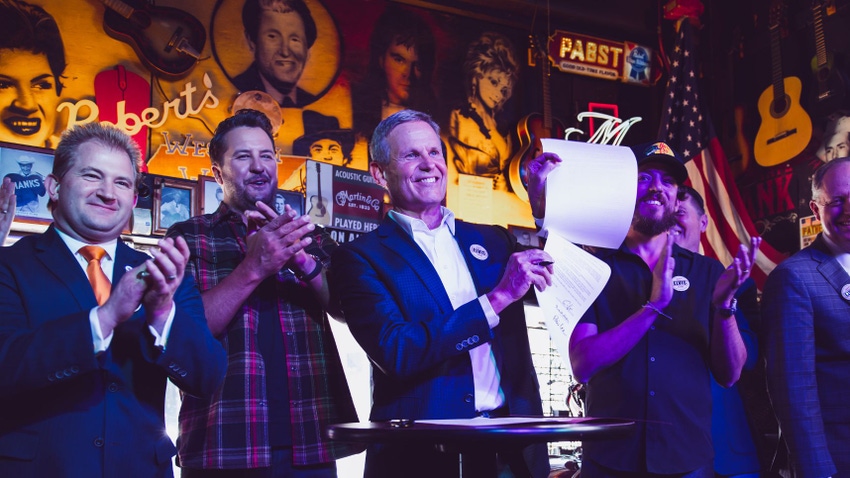Tennessee Enacts ELVIS Act to Protect Artist Voices from AI Misuse
The Ensuring Likeness Voice and Image Security Act will help safeguard the vocal rights of musicians

Tennessee Gov. Bill Lee has signed into law a first-of-its-kind piece of legislation that would protect singers from unauthorized use of their voices by AI technologies.
With the rise of generative AI, a wave of deepfake music also known as AI covers began flooding platforms like YouTube.
To counteract the unauthorized use, the Ensuring Likeness Voice and Image Security (ELVIS) Act offers improved publicity rights to songwriters and performers.
Prior state law covered performer’s names, images and likenesses. The ELVIS Act adds voice to the mix in a bid to protect one of Tennessee's most prized exports, being the home of country music.
“From Beale Street to Broadway, to Bristol and beyond, Tennessee is known for our rich artistic heritage that tells the story of our great state,” Lee said. “As the technology landscape evolves with artificial intelligence, I thank the general assembly for its partnership in creating legal protection for our best-in-class artists and songwriters.”
Country music stars like Johnny Cash and Hank Williams have all had their voices used by AI to create songs without their permission. Even Elvis Presley, after whom the legislation was named, has had his voice used to make it sound like he sang Sir Mix-A-Lot’s 1992 song “Baby Got Back.”
Music industry groups were in attendance as Governor Lee signed the bill into law.
Tennessee’s music industry contributes $5.8 billion to the state. But music industry groups are growing increasingly concerned about AI and its potential to impact artists.
It is a simple process to create an AI cover – with either an AI model overlaid on a human singer doing an imitation of a singer or using an AI-powered voice changer to synthesize high-quality voice outputs based on existing audio.
Record labels are keen to protect their artists from AI. Last April, Universal Music Group threatened legal action against any streaming sites that host AI-generated music after a popular AI cover of Drake and The Weeknd caused a stir last April.
Music industry groups were in attendance as Gov. Lee signed the bill into law.
“We applaud Tennessee’s swift and thoughtful bipartisan leadership against unconsented AI deepfakes and voice clones and look forward to additional states and the U.S. Congress moving quickly to protect the unique humanity and individuality of all Americans,” said Mitch Glazier, chair and CEO of the Recording Industry of America.
About the Author(s)
You May Also Like


.jpg?width=700&auto=webp&quality=80&disable=upscale)
.jpg?width=700&auto=webp&quality=80&disable=upscale)
.jpg?width=700&auto=webp&quality=80&disable=upscale)
.jpg?width=300&auto=webp&quality=80&disable=upscale)
.jpg?width=300&auto=webp&quality=80&disable=upscale)
.jpg?width=300&auto=webp&quality=80&disable=upscale)
.jpg?width=300&auto=webp&quality=80&disable=upscale)
.jpg?width=300&auto=webp&quality=80&disable=upscale)